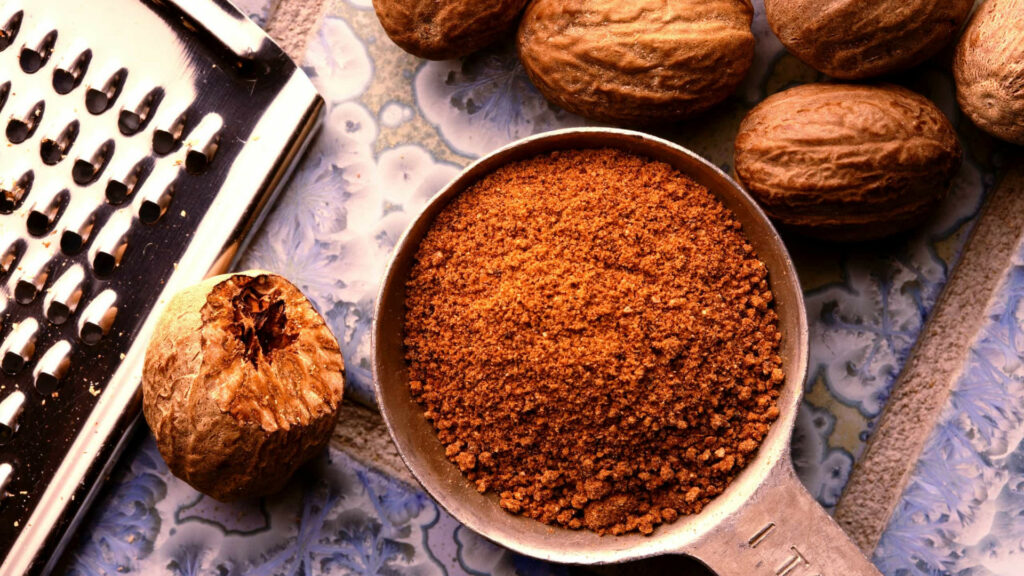Nutmeg is a warm and aromatic spice that is commonly used in both sweet and savory dishes. It adds a distinct flavor and aroma to recipes, making it a popular ingredient in many cuisines around the world. However, there may be times when you run out of nutmeg or need to find a suitable substitute due to allergies or personal preferences. In this comprehensive guide, we will explore eight great substitutes for nutmeg that can still bring delicious flavors to your dishes.
Cinnamon:
Cinnamon is a widely available spice that offers a warm and slightly sweet flavor profile. It is often used as a substitute for nutmeg in baking recipes, especially in desserts like apple pie or gingerbread. Use cinnamon in the same quantity as nutmeg called for in the recipe.
Allspice:
Allspice is a spice made from dried berries and has a flavor reminiscent of a combination of cinnamon, cloves, and nutmeg. It can be used as a suitable substitute for nutmeg in both sweet and savory dishes. Start with half the amount of allspice when substituting for nutmeg and adjust to taste.
Cloves:
Cloves have a strong, spicy, and slightly sweet flavor. While they have a more intense taste than nutmeg, they can be used as a substitute in certain recipes, such as mulled beverages or spiced baked goods. Use cloves sparingly, as their flavor can be overpowering. Start with a small amount and add more if desired.
Ginger:
Ground ginger can be a good substitute for nutmeg, especially in recipes that call for warm and spicy flavors. It adds a zingy and slightly pungent taste to dishes. Use ginger in a 1:1 ratio as a substitute for nutmeg.
Pumpkin Pie Spice:
If you have pumpkin pie spice on hand, it can be a convenient substitute for nutmeg. Pumpkin pie spice is a blend of cinnamon, ginger, cloves, and sometimes allspice. It already contains nutmeg, so it provides a similar flavor profile. Use it in the same quantity as nutmeg called for in the recipe.
Mace:
Mace is a spice derived from the same plant as nutmeg and has a similar flavor profile. It is slightly milder and more delicate than nutmeg but can be used as a substitute in equal amounts. Mace works well in both sweet and savory recipes.
Cardamom:
Cardamom is a highly aromatic spice with a unique flavor that combines citrusy, floral, and slightly spicy notes. While it has a distinct taste, it can be used as a substitute for nutmeg in certain recipes, such as baked goods and warm beverages. Start with a small amount of ground cardamom and adjust to taste.
Vanilla Extract:
While vanilla extract doesn’t have the same warm and spicy flavor as nutmeg, it can add a pleasant sweetness and depth to recipes. In some baked goods, a touch of vanilla extract can provide a similar aromatic quality as nutmeg. Add a small amount of vanilla extract to the recipe to enhance the flavor profile.
When substituting nutmeg with any of these alternatives, it’s important to keep in mind that each spice has its own distinct flavor. It’s always a good idea to adjust the quantity to suit your taste preferences and the specific recipe you are preparing. Experimentation is key to finding the perfect substitute that complements the other ingredients and brings out the desired flavors in your dishes.
In conclusion, while nutmeg is a popular and versatile spice, there are several great substitutes available that can add depth and flavor to your recipes. Whether you opt for cinnamon, allspice, cloves, ginger, pumpkin pie spice, mace, cardamom, or vanilla extract, each alternative brings its unique characteristics to the table. Enjoy exploring these substitutes and creating delicious dishes that are bursting with flavors.

